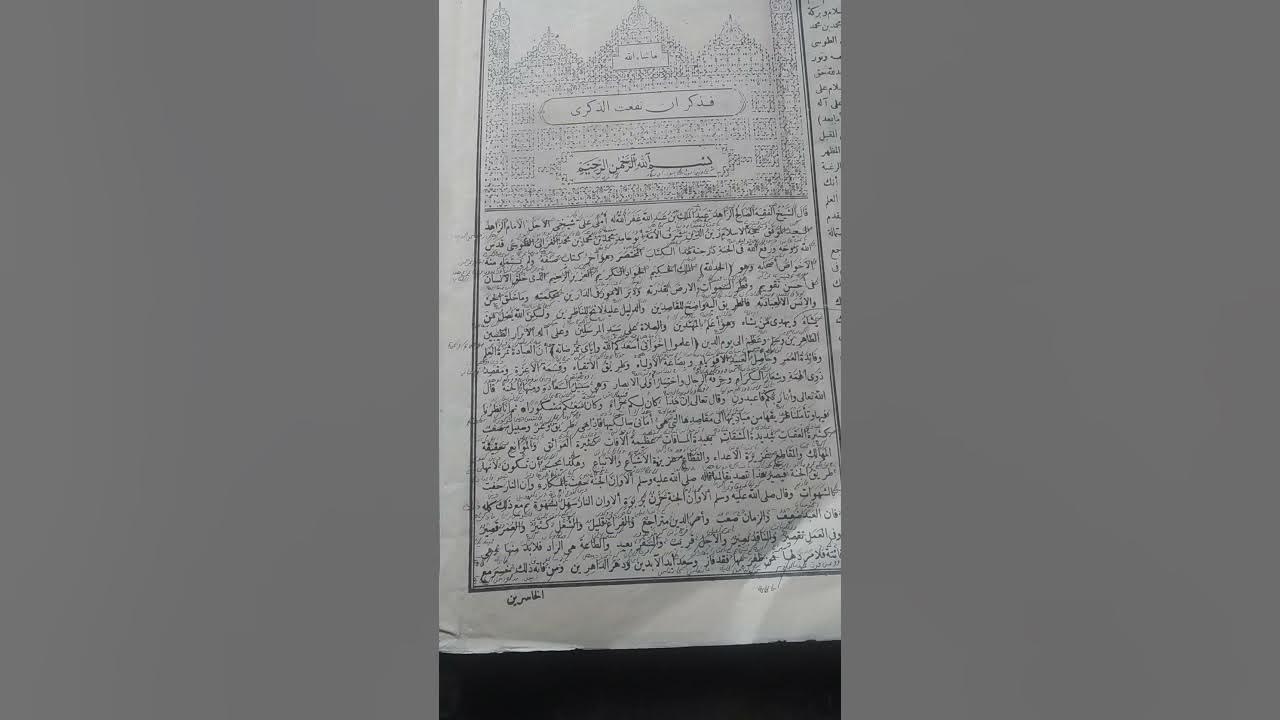Bacaan+Cara Sholat Jenazah Lengkap
Summary
TLDRThe transcript features a blend of traditional prayer and spiritual expressions, intertwining Islamic invocations with religious praises in a rhythmic and melodic manner. It emphasizes the repetition of prayers for peace, mercy, and guidance from Allah, including references to the Prophet Muhammad and various divine attributes. The text also incorporates a combination of personal and collective supplications for forgiveness and protection, ending with peace offerings. The overall tone is devotional, focused on seeking divine grace and reflecting spiritual reverence.
Takeaways
- 😀 The script includes a series of religious phrases invoking blessings, prayers, and praises to Allah, showcasing a deep spiritual expression.
- 😀 The script features repeated use of Islamic prayers such as 'Bismillahirrohmanirrohim' and 'Allahuakbar' to emphasize devotion.
- 😀 There are references to the Islamic practice of offering prayers for the deceased, invoking mercy and forgiveness for them.
- 😀 The script contains various Arabic phrases, including portions of the Qur'an, that highlight key elements of Islamic faith and worship.
- 😀 The repetition of words like 'mayyit' (the deceased) and 'kifayah' suggests the prayer focuses on those who have passed away.
- 😀 The script transitions through different parts of Islamic prayers and invocations, such as 'Alhamdulillah' and 'Salawat', expressing gratitude and invoking blessings upon the Prophet Muhammad.
- 😀 References to key Islamic concepts such as 'Rohman' (Mercy) and 'Maghfiroh' (Forgiveness) are made, aligning with themes of compassion and divine mercy.
- 😀 The script includes a call for spiritual protection, with phrases like 'wala taftinna ba'dahu', asking for safety from trials after death.
- 😀 It emphasizes the importance of seeking guidance and help from Allah, with phrases like 'Iyyaka na'budu wa iyyaka nastain' (You alone we worship and You alone we ask for help).
- 😀 The script concludes with greetings of peace ('Assalamualaikum Warahmatullahi Wabarakatuh'), maintaining a respectful and devotional tone throughout.
Q & A
What are the primary themes expressed in the transcript?
-The transcript includes religious themes such as prayers, praises, and invocations to Allah, as well as references to Islamic practices like the recitation of Surah Al-Fatihah and the remembrance of Prophet Muhammad. It also features repetitive chants that could be associated with music or ritualistic expressions.
What religious phrases are mentioned in the script?
-The script contains several Islamic phrases such as 'Bismillahirrohmanirrohim' (In the name of Allah, the Most Gracious, the Most Merciful), 'Allahuakbar' (Allah is the Greatest), and 'Assalamualaikum Warahmatullahi Wabarakatuh' (Peace and blessings of Allah be upon you).
What is the significance of the phrase 'Bismillahirrohmanirrohim'?
-'Bismillahirrohmanirrohim' is a phrase commonly recited by Muslims before beginning any task, symbolizing the start of an activity with the blessing and guidance of Allah. It acknowledges Allah's mercy and compassion.
What does the repetition of 'Allahuakbar' signify in the context of the script?
-The repetition of 'Allahuakbar' (Allah is the Greatest) is a form of praising and glorifying Allah, often used during prayer and in moments of spiritual reflection. It emphasizes the greatness and supremacy of Allah in the Islamic faith.
What role does 'Al-Fatihah' play in Islamic prayers, as mentioned in the script?
-Surah Al-Fatihah is a central part of Islamic prayers (Salat). It is a short chapter from the Quran that is recited in every unit of the prayer, seeking Allah's guidance, mercy, and blessings. The script mentions it in relation to seeking forgiveness and divine mercy.
What is the significance of mentioning Prophet Muhammad in the script?
-Prophet Muhammad is mentioned as a way to send blessings and peace upon him ('Allahumma sholli ala sayyidina Muhammad'). In Islam, sending blessings upon the Prophet is a common practice to show reverence and respect.
What does the phrase 'Allahumma ghfir lahu' mean?
-'Allahumma ghfir lahu' means 'O Allah, forgive him.' It is a supplication asking for Allah’s forgiveness for someone, typically used during funeral prayers or in moments of seeking mercy for others.
What is the significance of the term 'Jannah' in the script?
-'Jannah' refers to Paradise in Islam. It is the eternal reward for those who follow the teachings of Islam, and the script expresses a desire for divine favor in attaining it.
What role does the word 'Takbir' play in the script?
-'Takbir' refers to the phrase 'Allahuakbar' (Allah is the Greatest). It is often used to mark significant moments in Islamic rituals, such as during prayers or at the beginning of important events, and is repeated in the script as a means of glorifying Allah.
What is the meaning behind the phrase 'Alhamdulillah' as used in the script?
-'Alhamdulillah' means 'All praise is due to Allah.' It is a phrase used by Muslims to express gratitude to Allah for His blessings and mercy, and it is commonly recited in various contexts, including prayers and moments of reflection.
Outlines

هذا القسم متوفر فقط للمشتركين. يرجى الترقية للوصول إلى هذه الميزة.
قم بالترقية الآنMindmap

هذا القسم متوفر فقط للمشتركين. يرجى الترقية للوصول إلى هذه الميزة.
قم بالترقية الآنKeywords

هذا القسم متوفر فقط للمشتركين. يرجى الترقية للوصول إلى هذه الميزة.
قم بالترقية الآنHighlights

هذا القسم متوفر فقط للمشتركين. يرجى الترقية للوصول إلى هذه الميزة.
قم بالترقية الآنTranscripts

هذا القسم متوفر فقط للمشتركين. يرجى الترقية للوصول إلى هذه الميزة.
قم بالترقية الآنتصفح المزيد من مقاطع الفيديو ذات الصلة

Patriji's Jayaho Song | Patriji | PMC English

nembel minhajul Abidin 1. Mugi Istiqomah

🔥💥#தீபாவளி #கேதாரகௌரி அம்மன் 108 போற்றி⚡#devotional #religion #கேதார கௌரி அம்மன் #கேதார

Tutorial Ibadah Shalat | LPPIK UMS

DO NOT EVER SAY THIS IN SALAH, PROPHET (ﷺ) WARNED US

ZIARAH KUBUR ORANG TUA || LENGKAP DENGAN TAWASSUL/HADROT & DOA.
5.0 / 5 (0 votes)
